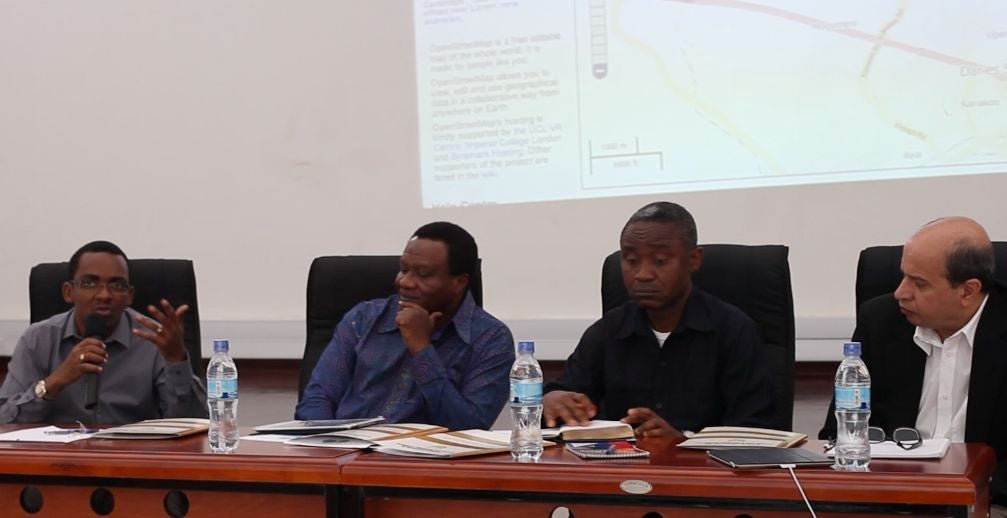Jeff Jesse, a Tanzanian student leader who has been collaborating with the World Bank team at the Open Development Technology Alliance, suggested an exciting idea over on the Daraja blog:
Why don't we open Dar Es Salaam, we could even call it Open Dar Es Salaam, where the City can come to young people to make maps, and then hackers can make new mobile and Web apps to help with different problems like education or trash collection. We have tons of talent here and people who want to do something good for the community.
Jeff's post reflects the excitement felt by many following a recent community mapping exercise in Tandale, an unplanned community in Dar Es Salaam. In Tandale, community residents joined Ardhi University School of Urban and Regional Planning (SURP) to use low-cost GPS devices and free and open source software stack to mark the location of roads, streets, street lights, trash dumps and upload urban infrastructure information to Open Street Map (OSM), a free and open online mapping platform. The training, provided by youth leaders involved in Kenya’s Map Kibera project, took only a few days in the field and computer lab.
On November 2nd at the Commission on Science and Technology (COSTECH), Mayor Jerry Silaa of Ilala- Dar Es Salaam, joined City Council administrators, urban planning faculty and students and technologists to discuss a shared vision of how youth-driven, collaboratively built technology can help local government improve public services, increase transparency and manage effectiveness.

Mayor Jerry Silaa (Ilala, Dar Es Salaam), Dr. Hassan Mshinda (Commission on Science & Technology), Dean John Lupala (Ardhi University), Barjor Mehta (World Bank, Urban) discussing the Dar Es Salaam community mapping experience
Following the results presentation from Nairobi-based trainers and SURP students, a panel of respondents made it clear that an Open Dar Es Salaam agenda is appealing to four groups who rarely have a chance to share an agenda: young people, local government, university students and local technology start ups.
Mayor Silaa opened the dialogue: “The most important thing is that we involve the community in solving their own problems,” and added that young people with few opportunity can see mapping as a way to develop skills and give back. “We can’t be everywhere. We rely on the community,” he said, and described how interactive maps can improve City planning by providing situational awareness around infrastructure, commercial and residential assets.
Hassan Abdallah and Lucy Fondo from Map Kibera share their presentation at the workshop
Dr. Hassan Mshinda, director of COSTECH, Tanzania’s leading business and innovation incubator, added that “linkages between industry and municipalities can help a new generation of policy makers use evidence to implement policies to improve people’s lives.” Dean Lupala, of Ardhi University, explained how the university is actively considering incorporating OSM into their curriculum to become a regional center of excellence in the community mapping methodology.
In closing remarks, Joseph Ngwegwe, Tanzania Program Manager for Twaweza, the regional East African initiative that joined the World Bank to support the Tandale effort mapping effort, suggested that bringing local government, young people, urban planning students and tech start ups together for an Open Dar Es Salaam could be part of Tanzania’s broader commitments to the Open Government Partnership (OGP), a global political movement for transparency and accountability.
The audience and speakers were clearly energized and ready to take the next steps. As Jeff reports:
A young guy from the University of Dar Es Salaam Computer Science Department ended the event by asking everyone to say “Passion…And Fire”, rubbing their hands together on passion and clapping on fire. It was a great summary of an exciting event.
Passion and fire, paired with the right ICT tools and an excited community, just might be the perfect ingredients to make Open Dar Es Salaam possible.



Join the Conversation